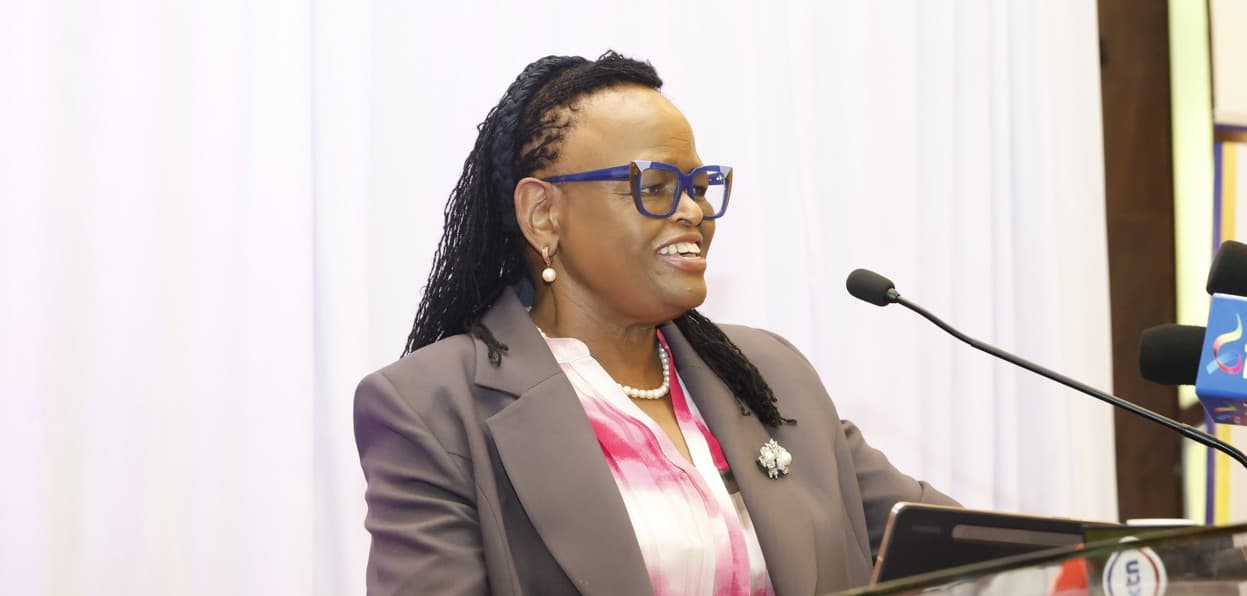We're loading the full news article for you. This includes the article content, images, author information, and related articles.
Chief Justice Martha Koome has proposed a nationwide conversation to tackle Kenya's deep-rooted bribery culture, urging citizens to actively reject and report corruption to restore faith in public institutions, including the Judiciary.

Chief Justice Martha Koome has called for a united, national conversation to confront Kenya's pervasive culture of bribery and corruption, framing it as a moral and civic duty essential for the nation's progress. Speaking on Monday, November 10, 2025, at the launch of the Administration of Justice in Kenya Annual Report, Koome emphasized that the fight against graft must extend beyond institutions to involve every citizen. “We need a national conversation with Kenyans so that we can come to an agreement in one accord that Kenyans will not give a bribe, and report when they are asked for one; they will report it as a crime,” she stated.
The Chief Justice's call to action is not entirely new but represents a significant reinforcement of the Judiciary's public stance against corruption. In March 2025, she unveiled an Anti-Corruption Strategic Guiding Framework for the justice sector, designed to provide a clear roadmap for short, mid, and long-term interventions through inter-agency collaboration. At that time, she announced the formation of Court Integrity Committees in all courts to identify and seal corruption loopholes. Her latest proposal, however, shifts the focus towards a societal-level compact, reminiscent of the public-led anti-graft efforts during the NARC government's early days in 2003. “How I yearn for such a moment when Kenyans themselves will say no to corruption,” Koome remarked, urging judicial officers to lead by example in this difficult conversation.
The Chief Justice’s appeal comes against a backdrop of persistent and damaging allegations of corruption within the Judiciary itself. The Law Society of Kenya (LSK), a key stakeholder, has been a vocal critic. In November 2024, LSK President Faith Odhiambo accused the Judiciary of complacency in the face of “runaway corruption within its ranks,” citing numerous complaints from its members about alleged bribery and unethical conduct by judicial officers. The LSK has claimed that such vices are eroding the credibility and effectiveness of the justice system. In a 34-page memorandum in December 2024, the LSK further alleged that some county governments had judges on their payroll, describing the situation as one where justice is sold to the highest bidder.
These criticisms are substantiated by data from anti-corruption watchdogs. The Ethics and Anti-Corruption Commission’s (EACC) National Ethics and Corruption Survey for 2024, released in August 2025, found that 12.6% of Kenyans cited bribery demands as a primary reason for the persistence of corruption. The survey also noted that giving bribes was the most common form of corruption witnessed in public offices at 52.1%. A 2023 EACC report was even more stark, highlighting a surge in the average bribe paid to KSh 11,625, up from KSh 6,865 in 2022. Furthermore, the 2025 Kenya Bribery Index from Transparency International Kenya revealed that the average bribe paid within the Judiciary was KES 18,800, the highest across all sectors surveyed.
Kenya’s struggle with public sector corruption remains a significant obstacle to its development goals. The 2024 Corruption Perceptions Index from Transparency International ranked Kenya 121st out of 180 countries with a score of 32 out of 100, where a score below 50 indicates serious levels of corruption. This falls below the Sub-Saharan African average of 33 and the global average of 43. According to the EACC, the high cost of living is now seen by 22% of Kenyans as the main driver of corruption.
The Judiciary faces multifaceted challenges in this fight, including overwhelming caseloads, financial constraints, and a significant backlog of cases that can slow the delivery of justice. The 2023-24 State of the Judiciary report noted that while the institution achieved a 99% case clearance rate, the total number of pending cases still rose by 1.2%. Critics argue that such delays can create opportunities for corruption to thrive. The fight is further complicated by what some analysts describe as a lack of political will and the complex nature of prosecuting high-profile economic crimes.
Chief Justice Koome’s proposed national dialogue is part of a broader, multi-pronged strategy to enhance integrity. This strategy is anchored in Kenya's National Ethics and Anti-Corruption Policy, which provides a comprehensive framework for promoting ethics and accountability. The Judiciary's own framework aims to foster collaboration with other agencies like the EACC, the Director of Public Prosecutions (DPP), and the National Police Service to create a unified front. However, the success of these institutional frameworks hinges on restoring public trust. A 2021 Afrobarometer survey showed that a large majority of Kenyans perceive at least some judges and magistrates as corrupt. The LSK has repeatedly called for more robust mechanisms to investigate and resolve complaints against judicial officers. In response to specific, high-profile allegations, the Chief Justice has previously referred matters to investigative agencies like the NIS and DCI and initiated high-level consultative meetings with the bar. Her latest call for a citizen-led movement against bribery signals an acknowledgment that institutional reforms alone are insufficient. The proposal aims to cultivate a culture of integrity from the ground up, empowering Kenyans to become active participants in the fight for a transparent and accountable justice system.
Keep the conversation in one place—threads here stay linked to the story and in the forums.
Sign in to start a discussion
Start a conversation about this story and keep it linked here.
Other hot threads
E-sports and Gaming Community in Kenya
Active 9 months ago
The Role of Technology in Modern Agriculture (AgriTech)
Active 9 months ago
Popular Recreational Activities Across Counties
Active 9 months ago
Investing in Youth Sports Development Programs
Active 9 months ago